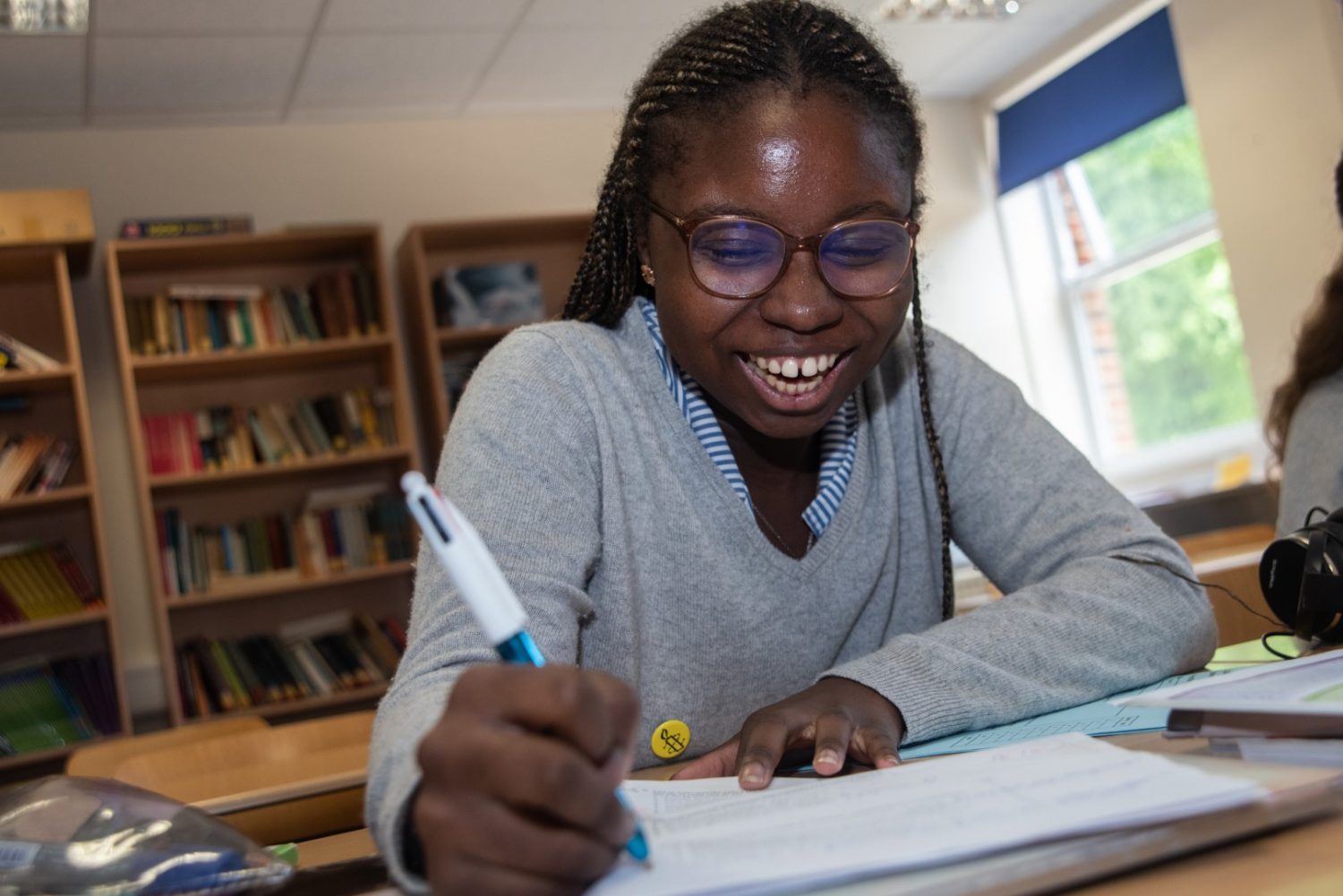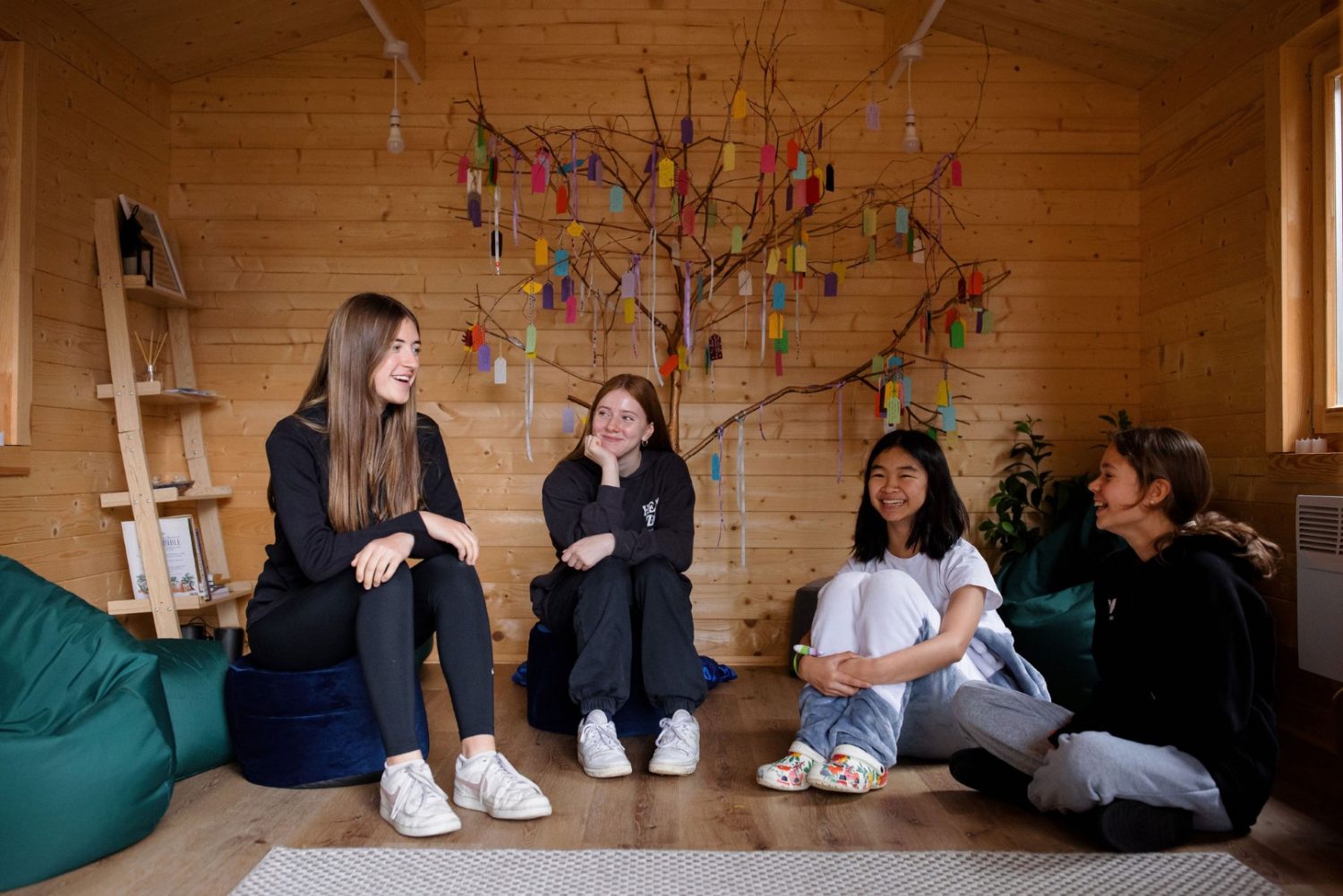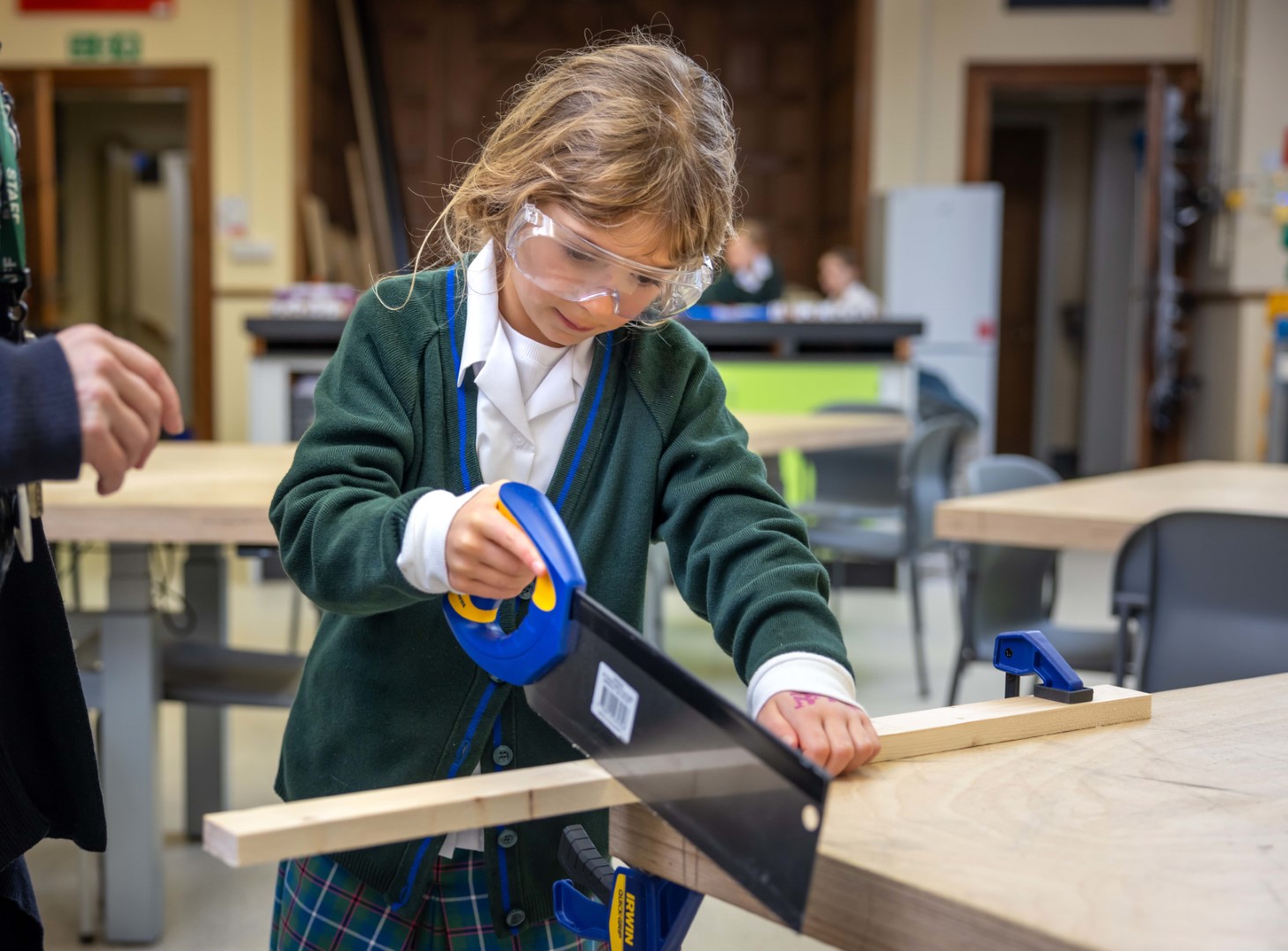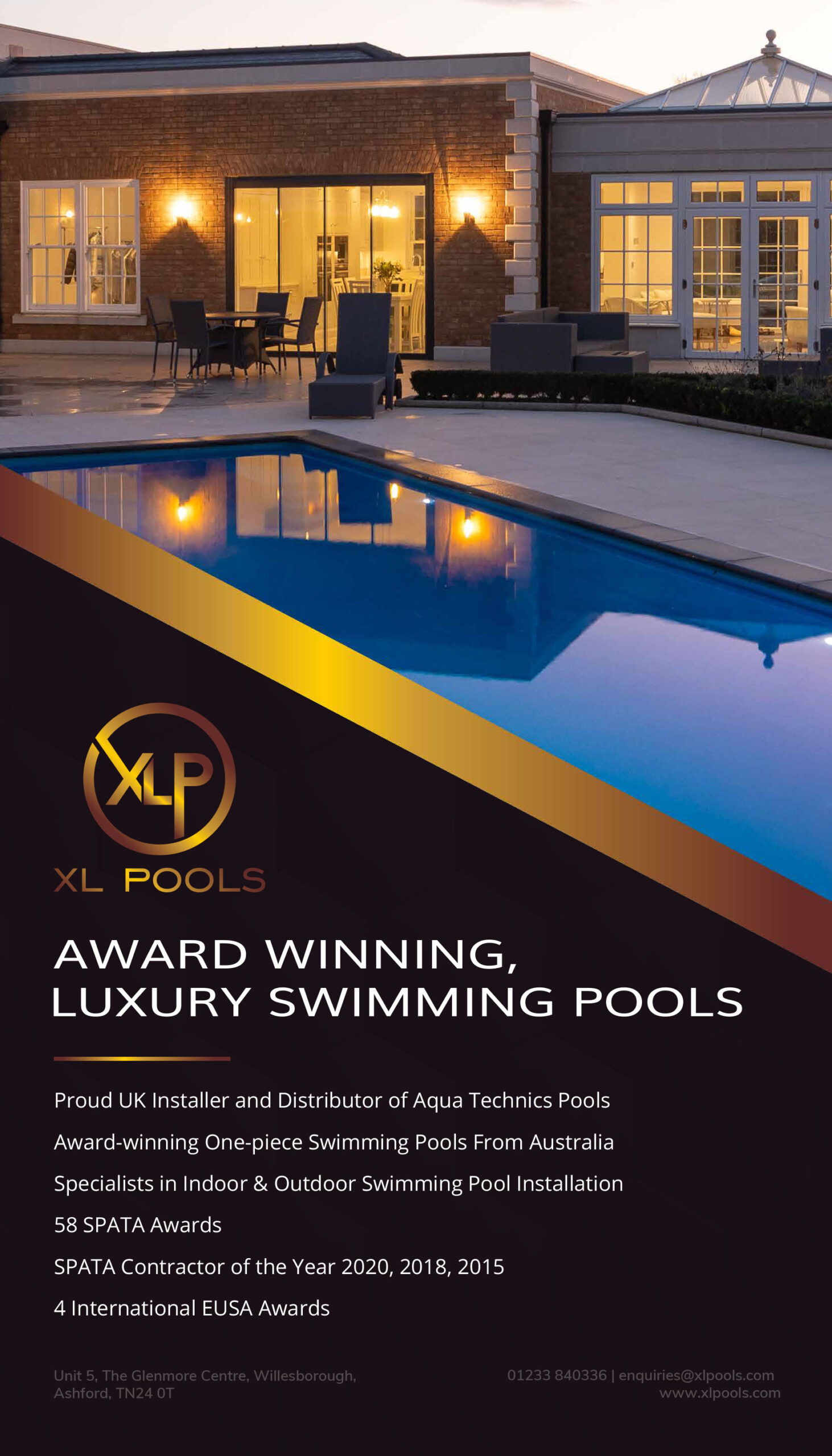The world is changing apace,
so how do our schools equip
children for the future?
Somerhill tell us about their innovative engineering tuition.
Recent experience during the Covid pandemic made it clear how vital scientists and engineers are to our society. At Somerhill, the pandemic confirmed our existing approach – to teach engineering to our pupils at the earliest opportunity. In 2019, we became the second school in the UK to offer the subject to all pupils from Year 3 (age 7) to Year 8 (age 13). Our pupils have an hour of dedicated engineering teaching every week, offering them significantly more than a typical design and technology (DT) curriculum.
We are proud to be taking the path less travelled by championing STEM education. Not only is this area of learning incredibly beneficial to children’s all-round development, it also provides them with skills which may help tackle global challenges and open up possibilities in their future working lives, regardless of gender. Women are still underrepresented in these career fields and we want to help our young girls recognise their potential to become the engineers the world is looking for.
“…pupils work together to find solutions to challenges”
So how do we teach engineering to such young pupils? The short answer to this question is: we don’t – not in the traditional sense of teaching facts. Instead, we teach the skills that engineers need, equipping our pupils with practical, hands-on construction and design skills. Through a creative problem-based curriculum, pupils work together to find solutions to challenges.
With technology being omnipresent in society, we are moving away from the need to retain knowledge and recite formulae. More important is the ability to apply the knowledge we gain and acquire skills to be able to function in and contribute to society – 21st century skills. There is no subject that builds all these skills so effectively and simultaneously as engineering.
Since launching the engineering curriculum, it has continually evolved. Children are undertaking more complex digital and physical projects such as creating digital escape rooms and learning about flight through the construction of gliders, as well as building Formula 1 cars and electric go-carts. Facilitating our programme are our three state-of-the-art science and engineering labs. We remain forward-thinking, exploring advancements like augmented reality (AR) and virtual reality to enhance our teaching methods. An exciting range of STEM clubs are also available to pupils so that they can continue their learning in activities outside the classroom.
By learning engineering in a problem-based way, our pupils are empowered to overcome challenges, fostering a sense of accomplishment as they complete tasks. This enhances their understanding of the subject and contributes to their personal growth. In the current landscape, cultivating a sense of achievement through problem-solving and practical skill acquisition is more crucial than ever.
Visit Somerhill to see this in action, or find out more at somerhill.org

As part of its Centenary Curriculum, Benenden has unveiled the Electives Programme – a vibrant new addition offering lessons and lectures designed to captivate and inspire without the usual pressures of examined subjects.
Students throughout the Junior School and Sixth Form have been exposed to an exciting new range of courses and lectures designed to focus on learning for its own sake. They go beyond the confines of the traditional syllabus and expand the students’ horizons. Looking at new issues, topics, and perspectives challenges students to think differently, question their assumptions and learn new skills. Many are cross-curricular – demonstrating that comprehensive understanding can only come from seeing an issue from different angles.
New ideas can be tested, challenged, and debated without fear of failure and in the knowledge that engagement and deep thought are end goals in themselves. Topics are diverse, with more than 70 titles inspiring and adding authentic extensions to the conventional curriculum. The Arts are well represented with lessons such as Women in Philosophy, and African Literature. Sciences sessions include Astronomy, The Science of Happiness, and Coding Through Minecraft. Elsewhere, Electives give an opportunity to explore international and cultural themes such as Global Politics, Francophone Culture, and British Sign Language.
The Sixth Form provision is equally enticing, pupils relish the opportunity to learn for learning’s sake. Bringing cultural capital and a love of learning (combined with excellent Oxbridge interview preparation) the students’ excitement for Benenden’s enhanced curriculum only continues to grow.
Learn more at benenden.school
Marymount International School tells us how the IB future-proofs their students.
As educators, rarely does a year, a term or even a week go by without reflecting on the extent to which the educational experience we are providing is fit for the world our young people will enter, especially when there is so much uncertainty about what that world will look like and need. So, how do we ensure we are educating for a changing world?
The International Baccalaureate (IB) champions a pedagogical approach designed specifically to respond to the needs of a changing world by prioritising the acquisition of key skills, attitudes and attributes, rather than focusing solely on content coverage, memorisation and high-stakes testing. The intended outcomes are to help learners to become increasingly self-regulated, autonomous and reflective, and are best articulated in the IB Learner Profile, a set of ten attributes or character traits, the possession of which are deemed essential in order to successfully navigate and make a positive difference to the world in which our students will live
“Students are taught to become reflective practioners”
Through all aspects of school life, IB schools design meaningful and authentic opportunities for students to not only become knowledgeable, but also inquirers, with a natural curiosity and the skills to find things out for themselves, thinkers, capable of critical, creative and analytical modes of thought, communicators, able to articulate their thoughts, ideas and feelings in more than one language, and risk-takers, with the courage and determination to face and overcome challenge. In IB schools, time is taken to consider what it means to be principled in one’s thoughts and actions, and why it is important to approach difference and the existence of multiple perspectives with an open mind. Students are encouraged to become caring and compassionate, and to develop vital community-building qualities, such as empathy, altruism and respect, and grow to appreciate the importance of balance in all aspects of life so as to remain happy and healthy.
Finally, and perhaps most importantly, IB students are taught to become reflective practitioners who make and take time to honestly identify their areas of strength and weakness and set personal goals and targets that will enable them to become the best version of themselves.

You may also like
Great Expectations
Mike Piercy, education consultant and former Head of The New Beacon, gives his opinion on tutoring There’s nothing wrong with ambition; indeed it is to be praised. Encouragement of ambition is inherent in parenthood and teaching.I have something of a...
Creative Thinking
Online educators, Technology Triumphs, talk us through their approach “There is no doubt that creativity is the most important human resource of all,” – Edward De Bono, the originator of the term lateral thinking.Despite this, creative pursuits have been seemingly...
5 Top Tips to get exam ready
Help your child navigate exam season with help from the experts It is no secret that, for some students, the exam season represents a stressful time. Antony Nesling and Beverley Bloem, Diploma Coordinator and High School Counsellor at ACS International...










